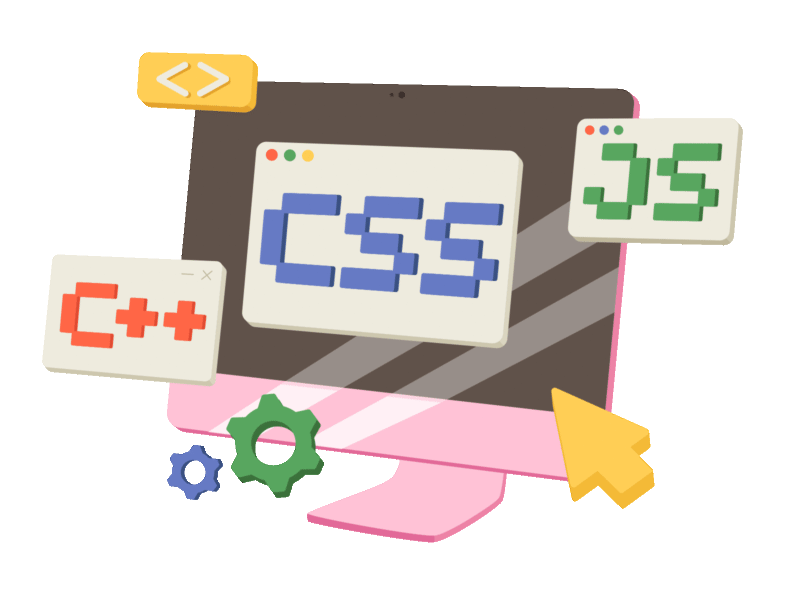Software Development Services
Engineering bespoke software solutions that enable businesses to thrive the digital age.

Potential of Software Development Services
Software development services are essential for businessess of all types and sizes in today's digital world. Now a days businesses are adopting digital technologies across all the sectors like education, healthcare and retail. It empowers to streamline their operations, improve productivity, and uncover new opportunities for growth and innovation. There are three layers that must work together to ensure fucntional, reliable and user-friendly software product.
Software Application: This layer includes the products core features, functionalities and capabilities.
Infrastructure: This layer provides the necessary technical resources and environment for the product to run smoothly.
User Experience: This layer focuses on the user interface and user experience of the product to meet the needs of the customers.

Engineering and Implementation
There are several important aspects to be considered for software development to build a efficient and successful system.The two key components are: Software Engineering & Software Implementation.
Software Engineering: Software engineering is the systematic and disciplined approach in designing, developing, testing, and maintaining software to ensure that the final output meets the requirements and is of high quality, reliable, efficient, and scalable.
Software Implementation: Software implementation is the process of building and putting the software into use, implementation can be done in-house or outsourced, depending on the resources and expertise available.
Types and Process of Software Development
Custom Software Development
Web Application Development
Mobile Application Development
Cloud Application Development
Software Integration
Legacy System Migration
Software Support & Maintenance
QA & Testing

Future of Software Development
Artificial Intelligence (AI): Creating intelligent machines that can perform tasks requiring human intelligence, such as understanding natural language or recognizing images.
Machine Learning (ML): Training software to recognize patterns in data and make informed predictions based on that data.
Augmented and Virtual Reality (AR/VR): Transporting users to immersive virtual worlds or ovelaying digital information onto the real world, making for some seriously mind-bending experiences.
Cloud Computing: Enabling businesses to access computing resourcing and storage via the internet, reducing the need for On-premises hardware and software.
Intelligent Automation(iRPA): Using software robots or bots to automate mundane and time-consuming tasks freeing employees to focus on higher-value work.
Internet of Things (IoT): Connecting devices to the internet and enabling them to communicate with each other creating a network of devices that can work together.

Building In-House vs. Outsourcing Software Development
The decision to build software in-house or outsource it is a critical one for businesses. Each approach has its own set of advantages and disadvantages, which can significantly impact project success. Below, we present a concise comparison in table format, followed by a detailed analysis of the pros and cons of both options.
| Aspect | In-House Software Development | Outsourcing Software Development |
|---|---|---|
| Ownership & Control | Full control over the process, customization, and IP ownership. | Reduced control over development, customization, and IP ownership. |
| Expertise & Skillset | Need to hire and maintain in-house talent. | Access to specialized skills and expertise without hiring full-time employees. |
| Cost | Potentially higher upfront and ongoing costs (salaries, infrastructure). | Potential cost savings with a fixed budget or hourly rates. |
| Time to Market | Longer development timelines due to resource constraints. | Faster time to market with dedicated teams. |
| Risk Management | In-house teams may struggle with adapting to unforeseen challenges. | Experienced outsourcing partners can handle risks more effectively. |
| Scalability | Scalability may be limited by available resources. | Flexible scalability with access to a global talent pool. |
| Communication & Collaboration | Direct communication but may lead to silos. | May require effective project management but offers broader collaboration opportunities. |
| Quality Assurance | In-house QA control, but limited external perspectives. | External QA expertise may provide more impartial testing. |
| Maintenance & Support | Full responsibility for maintenance and support. | Service-level agreements for ongoing support can be negotiated. |

Support & Maintenance for Software's Longevity
The key aspects of software development that ensure a software product's continues functioning and usability-support and maintenance. Software requires ongoing support and maintenance to ensure it remains operational, secure, and up-to-date.
Bug fixing and issue resolution
Security updates
Performance optimization
User training and support
Costs of Software Development
Software development costs can vary greatly depending on a variety of factors, including the size and complexity of the project, the technology stack being used, the expertise of the development team and the duration of the project. However, it's important to note that software development cost isn't just limited to the initial development phase but also includes ongoing support and maintenance expenses that are inevitable. There are several cost models for software development -
Fixed Price - This model involves agreeing on a fixed price for the entire project upfront. This can be suitable for projects with well-defined scope and requirements.
Time and Materials (T&M) - This model involves billing based on the number of hours worked and the materials used. This a flexible model and is suitable for projects with evolving requirement.
Staff Augmentation - This model involves hiring additional team members on a temporary basis to augment the existing team. This can be useful for managing short-term spikes in workload.

Best approach to Software Development
A well-defined software development process involves several stages, each with its own set of tasks and objectives. This process ensures that the software is developed efficiently on time, and within budget while meeting the desired quality standards.
Planning & Analysis: Designing the project requirements, scope, and objectives, followed by gathering and analyzing information about the project, identifying the resources needed and estimating the project timeline and budget.
Design: Designing the software architecture and creating a detailed design specification including user interface design database design and software component design.
Development: Actual coding, and programming of the software, according to the underlying design specification.
Testing: Testing the software to ensure that it meets the project requirements and functions as intended. This includes both unit and integration testing.
Deployment & Maintenance: After testing, It is deployed to the production environment. Followed by ongoing maintenace and support of the software including bug fixes, updates and enhancements.

Quality Assurance
Quality Assurance is critical to software development to ensure that the final product meets the desired standards and requirements. At Raphus, we take the extra step to ensure the quality of the software developed with structured QA processes and sophisticated performance tracking tools.
Quality Control: A defined set of processes is employed at every stage of software development to check the quality of software products or services.
Code Quality: Use of code quality standards to evaluate the quality of the code ahead of every release to ensure the maintainability of the code in the long term.
Software Testing: In this we include functional performance, unit, integration, security and usability testing to ensure teh seamless performance of the software.
Empowering Ideas, Engineering Solutions
Innovative software development tailored to your business needs.
Connect with Experts